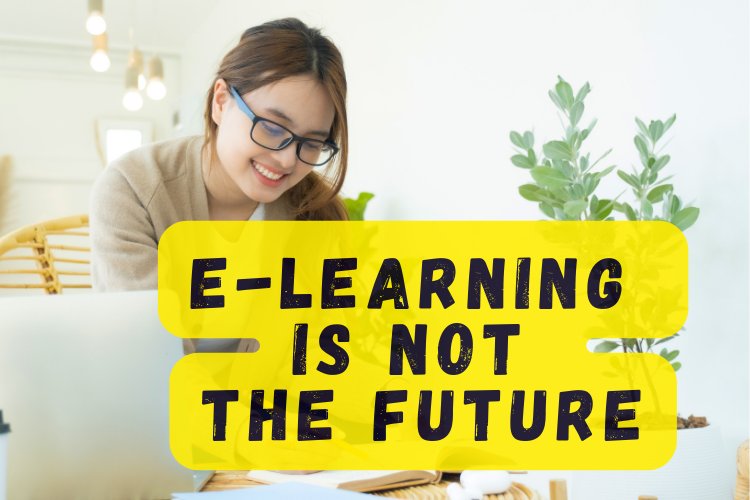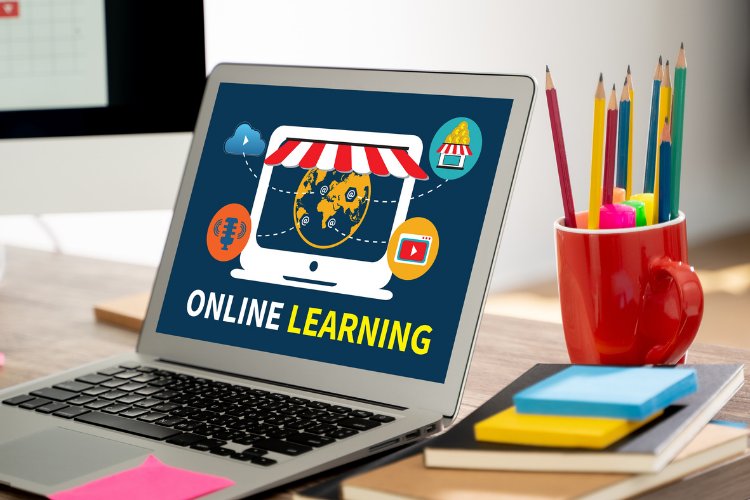Future Of Education: Isn't Online Learning? | E-Learning is not the future of education
Ultimately, the future of education is likely to involve a combination of different approaches and technologies, including both e-learning and traditional in-person instruction.

Future Of Education: Isn't It Online Learning? | E-Learning is not the future of education
It is difficult to make a definitive statement about the future of education and whether e-learning will play a central role. While e-learning has become more popular in recent years, it is not necessarily the only or the best approach for every learner or every subject.
There are some advantages to e-learning, such as the ability to access course materials and lectures online at any time and from any location, and the potential for interactive and personalized learning experiences. However, e-learning may not be as effective as in-person instruction for some learners or in certain subject areas, particularly those that require hands-on or experiential learning.
Ultimately, the future of education is likely to involve a combination of different approaches and technologies, including both e-learning and traditional in-person instruction. It is important for educators and learners to consider the strengths and limitations of each approach and to choose the one that is most appropriate for their needs
Why online classes are not effective ?
There are several reasons why online classes may not be as effective as in-person instruction for some learners:
- Lack of personal interaction: Online classes may lack the personal interaction and face-to-face communication that can be beneficial for some learners. This can make it more difficult for students to ask questions or get individualized help when they need it.
- Distractions: It can be easier for students to get distracted while taking online classes, especially if they are not in a dedicated study space. This can make it more difficult for them to focus on the material.
- Technological issues: Online classes can be disrupted by technical issues such as internet connectivity problems or difficulty accessing course materials.

- Different learning styles: Some students may learn better in a traditional classroom setting, where they can ask questions and participate in discussions with their peers and instructors.
- Limited access to resources: Depending on the resources available to students, online classes may not provide the same access to materials and equipment as in-person classes.
10 Reasons Why eLearning Loses Students
There are several reasons why eLearning courses may lose students:
- Lack of personal interaction: Online courses may lack the personal interaction and face-to-face communication that can be beneficial for some learners. This can make it more difficult for students to ask questions or get individualized help when they need it.
- Distractions: It can be easier for students to get distracted while taking online courses, especially if they are not in a dedicated study space.
- Technological issues: Online courses can be disrupted by technical issues such as internet connectivity problems or difficulty accessing course materials.
- Boredom: Some students may find online courses to be less engaging or interactive than in-person classes, which can lead to boredom and a lack of motivation.
- Lack of structure: Online courses may lack the structure and accountability of in-person classes, which can make it more difficult for students to stay on track and complete assignments.
- Inability to keep up: Some students may struggle to keep up with the pace of an online course, especially if they have other responsibilities or commitments.

- Lack of support: Online courses may not provide the same level of support as in-person classes, such as access to tutors or academic advisors.
- Difficult course material: Some online courses may cover challenging or complex material, which can be overwhelming for some students.
- Poor course design: Online courses that are poorly designed or organized can be confusing or difficult for students to follow.
- Lack of motivation: Some students may lack the motivation or discipline to complete an online course, especially if they do not have the same level of accountability as they would in an in-person class.
E-Learning-Frequently Asked Questions (FAQs)
1. What is e-learning?
E-learning is a type of education that is delivered online through the use of digital technologies such as computers, tablets, and smartphones. E-learning can include a range of activities such as watching video lectures, participating in online discussions, and completing assignments and assessments.
2. Is e-learning the same as online learning?
E-learning and online learning are often used interchangeably, but they can refer to slightly different things. E-learning typically refers to any type of learning that is facilitated by electronic devices or the internet, while online learning specifically refers to learning that takes place over the internet.
3. What are the advantages of e-learning?
E-learning has several advantages, including flexibility, convenience, and the potential for personalized and interactive learning experiences. E-learning can also be less expensive than traditional in-person instruction, as it eliminates the need for transportation and housing costs.

4. What are the disadvantages of e-learning?
Some of the disadvantages of e-learning include the lack of personal interaction, the potential for distractions, and the possibility of technical issues. E-learning may also not be as effective as in-person instruction for some learners or in certain subject areas.
5. Is e-learning suitable for all learners?
E-learning may not be suitable for all learners, as some students may learn better in a traditional classroom setting or may require hands-on or experiential learning. It is important to consider the individual needs and learning styles of students when deciding whether e-learning or in-person instruction is the best approach.












